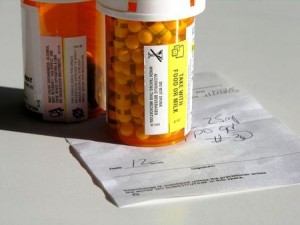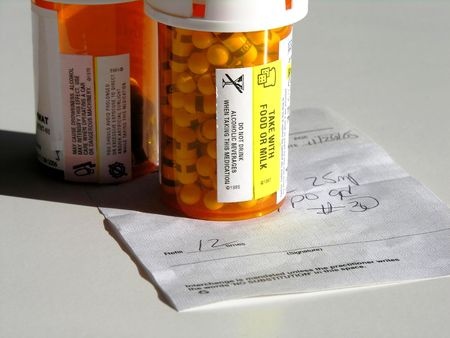 The New England Journal of Medicine recently published two very different articles on the 2004 black box warnings the FDA put on antidepressants because of their relationship to suicidality. They illustrate the truth that there are no brute, utterly uninterpreted facts. “The modern scientist, pretending to be merely a describer of facts, is in reality, a maker of facts” (Cornelius Van Til).
The New England Journal of Medicine recently published two very different articles on the 2004 black box warnings the FDA put on antidepressants because of their relationship to suicidality. They illustrate the truth that there are no brute, utterly uninterpreted facts. “The modern scientist, pretending to be merely a describer of facts, is in reality, a maker of facts” (Cornelius Van Til).
Richard Freidman concluded from his review of the literature that the black box warnings led to less treatment for depression. Not only had prescription rates for antidepressants fallen, so had the rate of diagnosing new cases of depression. He acknowledged that data indicating these trends were only correlational and could not establish a causal link between the warning and these changes. Yet he thought it plausible that in the face of the debate over FDA warning and resultant media coverage, “patients might be reluctant to disclose symptoms that could lead to a diagnosis of depression and subsequent antidepressant treatment, and physicians might be hesitant to prescribe these drugs.”
He also noted a study by Lu et al. that found there was a statistically significant increase in psychotropic-drug poisonings after the FDA warning. This measure was used by the study as a proxy measure for suicide attempts. “Insofar as such poisonings represent a reasonable proxy for suicide attempts, it’s possible that the downward trend in antidepressant use resulted in an increase in such attempts.” He qualified that statement by saying that we cannot be certain that any given poisoning was intentional or accidental. Then he pointed to a gradual increase in suicide rates among 10 to 34 year olds between 1999 and 2010. “So there is little evidence that actual suicide rates have changed in the wake of the advisory.”
In his opinion, the “very small risk associated with antidepressant treatment” is offset by the far greater risk posed by untreated depression. Given that the 2007 modification of the black-box warning was not enough to prevent “a chilling effect on depression treatment,” he did not think further modifications would be helpful. He recommended that the FDA consider removing the warnings entirely.
I believe we cannot ignore the weight of these epidemiologic data or the very real possibility that the FDA advisory has unintentionally discouraged depressed patients from seeking treatment and doctors from prescribing antidepressants.
However, as Mad in America pointed out, Dr. Marc Stone challenged virtually all of the interpretations made by Dr. Freidman in his article. Stone meticulously demonstrated how the investigators in the reported studies failed to distinguish the alleged effect of “the boxed warning from the effect of general public awareness of the suicidality issue.” He further noted that it cannot be assumed that 2005 decreases in antidepressant prescription rates were a reaction to the warning and resultant controversy.
While the number of prescriptions did decrease in every age group up to 54 years of age, they increased in every older subgroup. “Why were prescribing trends unaffected among adults 55 or older?” Stone suggested that the time period was a transitional one, where several popular antidepressants went off patent, while generics sharply increased. From 2004 through 2008, promotional expenditures for antidepressants decreased by 35%.
It is possible that the modest reduction in antidepressant prescribing reflected drug makers’ reduced marketing of brand-name antidepressants to everyone except patients who would soon be eligible for the new Medicare prescription-drug benefit.
Stone also noted that the Lu et al. study cited by Freidman rested its claim that “poisoning by psychotropic agents” could be a proxy measure for suicide attempts on an invalid application of another study: “That study did not investigate whether the relationship between proxy and attempted suicide remained stable over time.” Superior data from the CDC indicated that incidents of attempted suicide from poisoning and all other causes peaked in 2003 or 2004 and then declined. In addition, the rate of accidental poisoning, such as drug overdoses, increased significantly in 2005 and 2006. Dr. Stone concluded:
These data should be sufficient to dispel any serious concerns, but nearly 10 years after the labeling changes, the idea that the boxed warning had adverse consequences persists in the minds of many health professionals, in the media, and among the general public.
Psychologist Philip Hickey also wrote a critique of the Lu et al. study. He quoted several statements from the National Institute of Health (NIH) press release about the study and then proceeded to devastatingly show how the statements were false. Both the link provided by Hickey and a search of the NIH site failed to find the noted press release. It seems to have been removed. He concluded that the Lu et al. study was meant to be PR and spin, not science.
The fundamental message in the study, and in the NIH press release, is: If you reporters print bad things about antidepressants, this will lead to reduced usage of these products, which in turn will lead to more suicides, and you will have blood on your hands!
But why is there a PR campaign for antidepressants occurring now? Julia Calderone’s article in Scientific American, “The Rise of All-Purpose Antidepressants,” may have provided a clue. She noted that doctors commonly use antidepressants to treat conditions they are not approved for by the FDA—so-called off label use. “Studies show that between 25 and 60 percent of prescribed antidepressants are actually used to treat [off label] conditions.” So the message is, if you reporters print bad things about antidepressants, doctors could lose one of the main drug options they have for altering brain chemistry.
Antidepressants are ineffective in treating all but the most serious cases of depression. There have also been reliable studies showing that the placebo effect accounts for virtually all of the drug effect of antidepressants. Could the placebo effect also be at work in the off-label use of antidepressants? They have been shown to have serious side effects warranting the inclusion of the black box warning. If anything, the warning should be extended to include adults, the age group most often using antidepressants.





